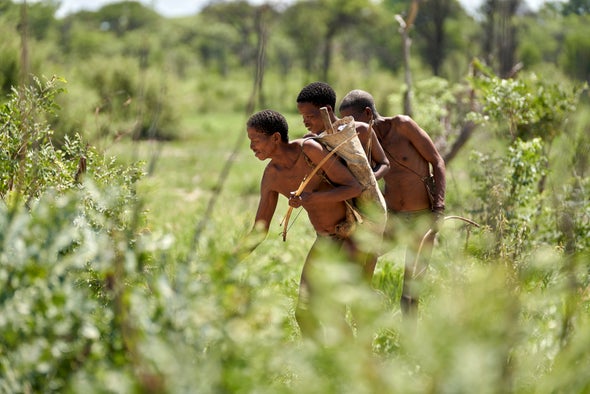Lush Okavango Delta Pinpointed as Ancestral Homeland of All Living Humans
Genetic evidence traces our origins to a hunter-gatherer community that lived 200,000 years ago, but the study has generated controversy

Anyone lucky enough to have visited the Okavango Delta in the southern African nation of Botswana will recall the comforting and oddly familiar sensation of looking out from the shelter of a stand of trees at the panorama of wildlife—from elephants and African wild dogs to lilac-breasted rollers—moving across the lush surrounding floodplains. That sense of familiarity may run deeper than we imagine, a new study suggests—back to a time when early modern humans also wandered there.
The study, appearing Monday in the journal Nature, uses genetic, archaeological, linguistic and climatic evidence to argue that the ancestral homeland of everyone alive today was in northern Botswana—not in East Africa, as previously thought. Based on mitochondrial DNA, passed down from mother to daughter, the paper’s co-authors argue that we are all descended from a small community of Khoisan hunter-gatherers who lived 200,000 years ago in vast wetlands encompassing Botswana’s Okavango Delta and the Makgadikgadi regions.
No comments:
Post a Comment